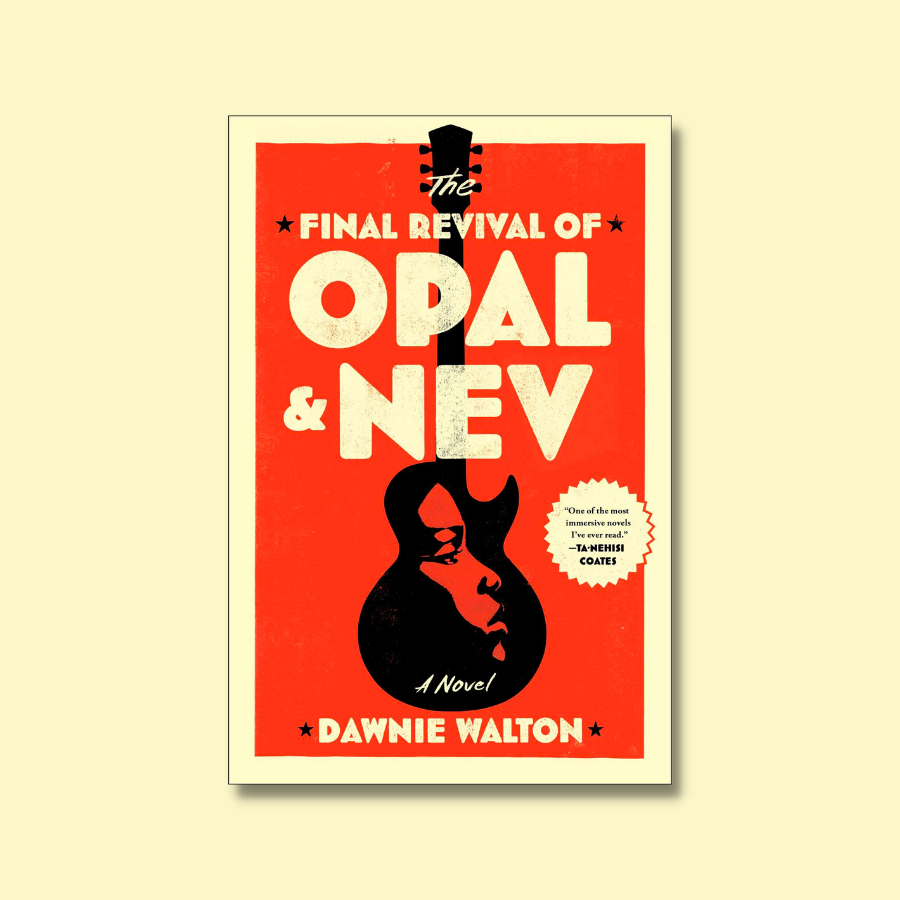On Tuesday, August 30, Feminist Book Club members had a Zoom hang with Dawnie Walton, the author of The Final Revival of Opal & Nev. Here are some of the highlights of our conversation from that evening
What does feminism mean to you?
I think, for me, it is a certain freedom and it’s a freedom that expands from generation to generation. … It’s about doing the best you can for yourself and making it better for the women who are coming after you.
It’s very realistic the way you capture how white people look away. Nev has books and materials that indicate he’s aware of the social injustices surrounding him, yet when it’s time for action and culpability he remains silent. However, Nev isn’t American. Was that intentional, showing that white privilege isn’t an American-only quality?
Yes. Absolutely. Whiteness is worldwide. I made him British because I felt like that was historically true to the era. The ’70s were a particular era in rock and roll, when artists wanted to add a soulful element to their music. They would often look towards black women singers, particularly those out of the church. That’s how we get “Gimme Shelter” by The Rolling Stones. That’s how we get Joe Cocker’s whole thing with the backing singers. … And I wanted to make it believable in the sense that they would actually have, at one point, a friendship. It was hard for me to believe that a partnership like that would exist in a sense, but if it was going to be anyone, it would probably be an Englishman.
These things sort of express themselves in different ways in different cultures, but they still exist. The ambition that Nev feels, combined with that privilege of his whiteness, I think it would operate in a way that we would imagine it would if the character were American, too.
What’s your first memory of really loving an artist?
When I was 7, it was Michael Jackson. I was born in 1976, so this is the era he’s going from Off the Wall to Thriller. When I was thinking for myself and really responding in a very personal, deep, and a very hungry way to music, I remember being very fascinated by R.E.M in high school and with their songwriting. Out of Time was a big record for me because of “Losing My Religion.” I remember watching their MTV Unplugged and it was different from anything else at the time. It was this thing they were calling “College Rock” and I dreamed about college and being this intellectual. And later, it was Stevie Wonder and The Beatles.
I love the idea of you writing something for Black folks and about Black folks that is not centered around trauma. The fact that it is not the main compass of the story brings me a lot of joy. Who are some writers who have done that for you?
I’ve been reading a lot of short fiction lately and I do a podcast with a writer friend named Deesha Philyaw and she has a book called The Secret Lives of Church Ladies. It is a fantastic book and I’d actually recommend it for this group. It is about mothers and daughters. It’s very moving but also very funny in moments. It’s a great book.
I have this book, and even the editor’s note was entertaining and funny. It’s a collection called Gorilla, My Love by Toni Cade Bambara. So I think that’s another suggestion. I often find the mood I’m trying to hit in film and television. There’s a show I binged over the weekend called Mo. [I]t’s about a Palestinian man and his family who are seeking asylum in America but they live in Houston, Texas. It is very very funny and very moving in moments. ‘Cause for me, that’s what life is. Those things together. We don’t walk around in tragedy 24/7 and life is not entertaining and funny 24/7. It’s those things together and that’s the tone I’m always trying to go for.
…
Feminist Book Club now has a Spotify! Check out the music that inspired The Final Revival of Opal & Nev here! And if you’re not a member yet and would like the chance to hang with authors like Dawnie Walton, we’re waiting for you…


